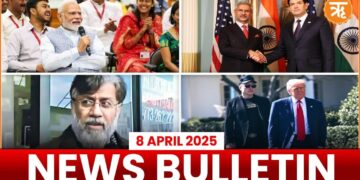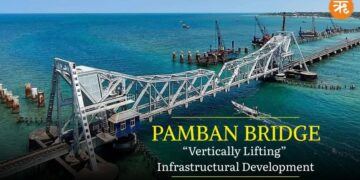As Iranians get ready to choose between two radically different leaders in the next presidential runoff election today, the country is on the verge of a historic moment. The runoff was required after the unexpected passing of former president Ebrahim Raisi and foreign minister Hossein Amir-Abdollahian. Iran faces a difficult decision between reformist Masoud Pezeshkian, who advocates for increased engagement with the West, and ultraconservative Saeed Jalili, who is known for his hardline positions and close alignment with Iran’s Supreme Leader, Ayatollah Khamenei. Although, the turnout in the first round of elections was only 40%, the lowest since the Islamic Revolution of 1979.
Nevertheless, Iran’s choice in this runoff election has the potential to profoundly influence its domestic and international relations in the years ahead, especially in light of the country’s economic difficulties, regional unrest, and increased international attention.
In light of the continuing nuclear negotiations and the rising tensions with Israel, the outcome of this election is seen as a critical litmus test for Iran’s foreign policy and internal stability. Critics have cited restrictions placed on the selection of candidates by Iran’s Guardian Council, which excluded a number of well-known individuals, including all female candidates and former president Mahmoud Ahmadinejad.
Meanwhile, reformist politician Masoud Pezeshkian defeated ultraconservative Saeed Jalili in the first round of voting, winning 42.5% of the vote to Jalili’s 38.6%. Jalili, a former nuclear negotiator, and ardent hardliner, emphasises military might and nationalist pride in his defence of Iran’s ability to withstand sanctions. His campaign emphasises defiance of perceived Western influence and sovereignty.
Deep rifts and discontent with the established order exist within Iranian society, as seen by the inconclusive first-round vote that led to the runoff. Voters’ apprehensions regarding Jalili’s strict policies may have contributed to Pezeshkian’s favour, since he stands for a more moderate option desiring more involvement.
Reformist and former minister of health, Pezeshkian has advocated for practical collaboration with Western countries to mitigate economic difficulties intensified by sanctions spearheaded by the United States. His agenda places a strong emphasis on economic recovery and social liberty.
Significant changes in Iran’s political environment have changed the situation, with several conservative groups now supporting Pezeshkian. Pezeshkian has received support from individuals like Sardar Mohsen Rashid, a founding member of the Islamic Revolutionary Guard Corps (IRGC), suggesting internal conflicts within the hardline group.
Consequently, whoever stands victorious in the Iran elections, will leave behind a country facing serious economic difficulties made worse by foreign sanctions. Along with managing social unrest, the incoming president of Iran will also need to navigate the country’s challenging geopolitical environment.
















Comments